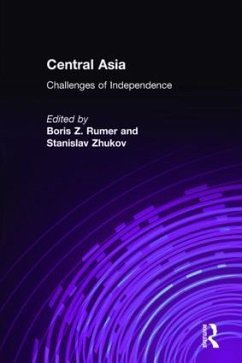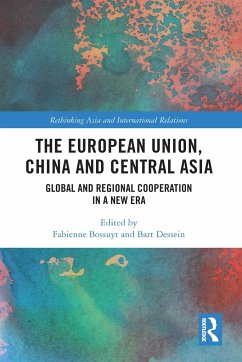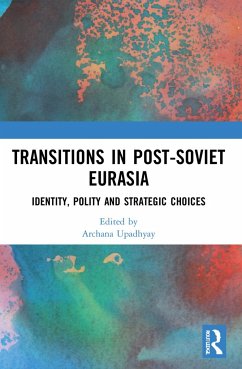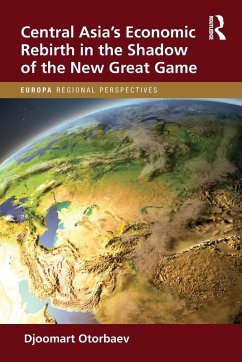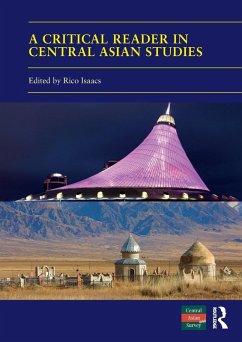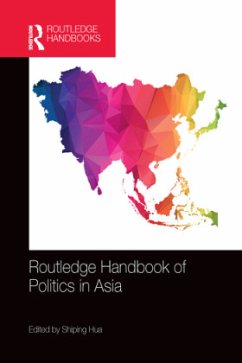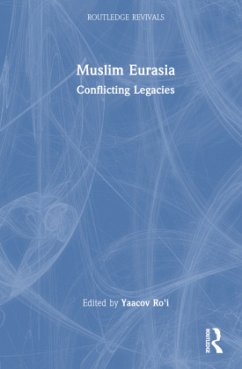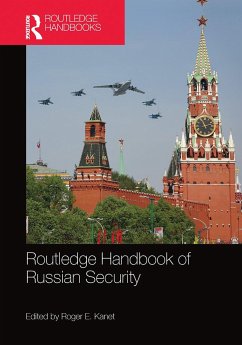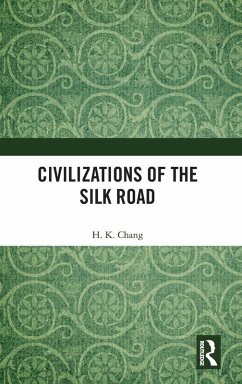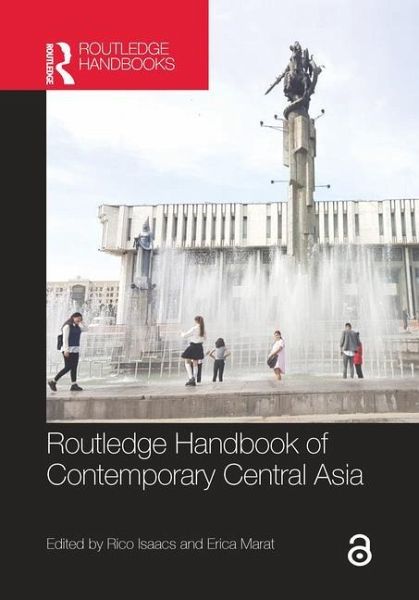
Routledge Handbook of Contemporary Central Asia
Versandkostenfrei!
Versandfertig in 6-10 Tagen
49,99 €
inkl. MwSt.
Weitere Ausgaben:

PAYBACK Punkte
25 °P sammeln!
The Routledge Handbook of Contemporary Central Asia offers the first comprehensive, cross-disciplinary overview of key issues in Central Asian studies. The 30 chapters by leading and emerging scholars summarise major findings in the field and highlight long-term trends, recent observations and future developments in the region. The handbook features case studies of all five Central Asian republics and is organised thematically in seven sections:HistoryPoliticsGeographyInternational RelationsPolitical EconomySociety and CultureReligionAn essential cross-disciplinary reference work, the handbook...
The Routledge Handbook of Contemporary Central Asia offers the first comprehensive, cross-disciplinary overview of key issues in Central Asian studies. The 30 chapters by leading and emerging scholars summarise major findings in the field and highlight long-term trends, recent observations and future developments in the region. The handbook features case studies of all five Central Asian republics and is organised thematically in seven sections:
HistoryPoliticsGeographyInternational RelationsPolitical EconomySociety and CultureReligion
An essential cross-disciplinary reference work, the handbook offers an accessible and easyto- understand guide to the core issues permeating the region to enable readers to grasp the fundamental challenges, transformations and themes in contemporary Central Asia. It will be of interest to researchers, academics and students of the region and those working in the field of Area Studies, History, Anthropology, Politics and International Relations.
Chapter 23 of this book is available for free in PDF format as Open Access from the individual product page at www.routledge.com. It has been made available under a Creative Commons Attribution-Non Commercial-No Derivatives 4.0 license.
HistoryPoliticsGeographyInternational RelationsPolitical EconomySociety and CultureReligion
An essential cross-disciplinary reference work, the handbook offers an accessible and easyto- understand guide to the core issues permeating the region to enable readers to grasp the fundamental challenges, transformations and themes in contemporary Central Asia. It will be of interest to researchers, academics and students of the region and those working in the field of Area Studies, History, Anthropology, Politics and International Relations.
Chapter 23 of this book is available for free in PDF format as Open Access from the individual product page at www.routledge.com. It has been made available under a Creative Commons Attribution-Non Commercial-No Derivatives 4.0 license.





